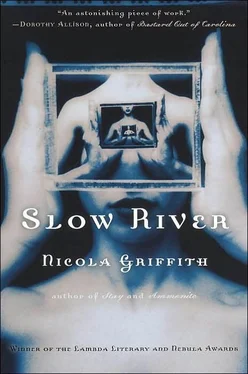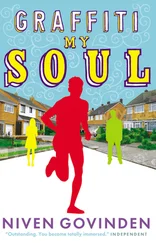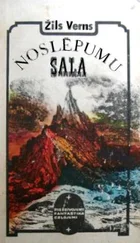“I know. I tried to compensate for that. But it was mostly guesswork.”
“It often is, at least in the evaluation phase of a project.” Katerine begins to fill another plate for herself. “Did you try for a differentiated flow rate or go for a median rate?”
Lore sits up straighter. “Wouldn’t a median rate defeat the object? I mean, when Willem took me round the plant in Den Haag he said the whole point was to calculate and bear in mind the different rates at which living things speed up or slow down flow.” She gets a nod and an encouraging smile for that. “And that’s not even taking into account the different ways those plants act on the contaminant…”
And Lore finds that she is enjoying herself. Her mother is talking to her as an equal, not as the family pawn, the commodity to be traded on for points. When she is the center of attention she does not have to think about Stella, does not have to worry about Tok and what he saw. And she finds that while she talks of flows and systems, she has images in her head of bright water and cool colors, of sunshine and green plants. It is a miracle to watch phenol turn to carbon dioxide, to see metal absorbed by moss and made harmless, to see a natural ecosystem survive because someone, somewhere, bothered to sit down and think about a way to design a biosystem to augment it.
As the sun begins its downward slide and the blades of grass cast longer shadows, and she and Katerine continue to talk, she wonders if her grandmother—the rich one, the one who was stupid enough to spend money playing with their genes but smart enough to also tailor bacteria that made her family’s company possible—ever saw whole systems shining in her head that way Lore does that afternoon.
When Oster gets back wearing his clean, dry clothes, Lore looks up and is about to smile at him, happy, when she realizes Katerine is grinning, hard, in triumph, as if to say, See? Her heart is mine!, and Lore’s smile falters and she feels the shining systems in her head crack and tarnish.
Spring is long gone and the summer grows tired and hot and brown around the edges. Tok suddenly announces that he is ready to take on more responsibility and leaves immediately for Louisiana to take charge of the family’s ongoing remediation project in the bayous. He has avoided everyone since the picnic, even Lore, and she suspects he wants to work harder not because he wants to assume the burdens and privileges of adulthood, but because he does not want to have time to think about the place he went to, the thing he saw, when he looked at Stella in the fountain.
Lore spends some time with Oster, trying to count the number of fish species in the azure and turquoise waters off the island. Her hair turns gray-white, like ash, and her skin darkens. Oster gets more pensive.
The water is as still as glass, and Lore is staring out at the distant horizon, thinking of nothing, when he asks, “Has Stella talked to you?”
Lore does not turn to look at him and does not ask what he means. “No.”
“She must have said something.”
“She didn’t. She never talks to me.”
“What about Tok?”
“What about him?”
“Don’t be difficult, Lore.”
Lore feels something rising up inside her, hot and empty, like an air bubble. “Tok hasn’t said anything, Stella hasn’t said anything. Nor have you or mother, not even Willem or Marley or Greta. No one ever really says anything.” As she lists the family she notices how easily they slat into subsets, all but her.
Oster has the grace to look down at his feet. “It’s just that I forget you’re not little anymore. I’m used to you being the baby of the family. I think of you as being seven, of sitting up in bed demanding to know why your hair is gray. And it’s still gray.”
“What do you mean?”
He opens his hands, pleading for understanding. “Stella started dyeing her hair when she was eleven. Tok when he was twelve. Yours is still gray. I look at it and immediately think: Still too young to dye her hair, thank god.”
Lore touches her white-gray hair self-consciously. Her youthful vow to never dye it now seems childish, as irrelevant as milk teeth.
Lore is fourteen two days before term begins. She arrives at school in Auckland with hair dyed in black and white flashes, like a head of lightning.
Lore is someone else and it excites her. She wonders why she didn’t start dyeing her hair years ago. Now when she looks at herself in the mirror she sees a young woman who has designed herself. She can do anything she wants. She toys with the idea of wearing lenses but decides she likes the gray eyes and black and white hair. It gives her a cool, distant look, like the faces of dead heroes buried under ancient ice. It is a face that knows.
But what Lore knows is only through film. The time has come to discover with her body.
She calls up her anonymous friends on the net and asks about sex clubs.
The films Lore has seen and made are hard-core, not glitzy, romanticized versions of the truth, but, even so, the truth is more than she expected. The bar seems bright and friendly from the outside, as though there is nothing to hide, but the people Lore watches as they go in pay the cover using temporary debit cards, probably bought from one of the score of midtown dealers who convert PIDA credit to anonymous cards for a two-percent commission. Lore waits until they have disappeared inside, then offers her own card.
The hot, crowded bar smells. Beneath the high tickle of perfume and the raw throaty sting of alcohol lies the heavy, deep scent of bodies clothed and unclothed: leather, latex, the tang of sweat and excitement, and older smells, the kind that come from the stains the dim lighting is designed to hide. A thick bass line slides between and through the bodies standing at the bar, sitting at the tiny tables, dancing on the floor. It pushes against Lore’s abdomen, like a hand.
She heads for the back room.
A woman at the door stops her, hands her something. A leaflet. In the back room it is too dark to read anything but the header: Safer Sex Guidelines. Lore puts it in her pocket and heads for the scene room.
There are about a dozen women there. Some are engaged in sex, some are watching. One woman with long hair and fashionably loose muslin clothes stands by the wall. She is petite but not frail and there is a bag at her feet. Lore knows what she should do: she should catch the woman’s eye, walk over, and lay her hand on the woman’s arm; she should look into the woman’s eyes and say in a voice that means Let’s pretend, “I’m Star,” or Jade or Ellie, “a helpless, nervous virgin,” and then they would just… do it. She has seen pictures of everything. She knows how it goes. But life is different from pictures.
She does not know what to do.
The woman sees her, smiles. Lore smiles back, then blushes. The woman pushes herself off the wall, hesitates. They both walk toward each other at the same time.
“I…” says Lore, and feels paralyzed.
“I’m Anne,” the woman says, and takes her hand.
It is like the closing of an electric current, and suddenly Lore knows everything will be all right. They move off into a corner where a woman nods them to a stairway. Lore knows she climbs the stairs, but all she remembers is the feel of another woman’s hand in hers. And there is a bed and some words but Lore barely pays attention. For years her want has been undirected, amorphous, aimed now at some figure on the net screen, now some character in a novel, but for the first time she knows exactly who will touch her, will kiss her, will make her sweat. This woman. This woman with her long hair and small hips will ease inside her clothes; this woman with the New Zealand accent will open her legs and smile conspiratorially when she finds Lore wet; this woman will slip her fingers inside Lore and talk to her and encourage her and fuck her until her tendons strain and she starts to thrash and then cries out until her throat is raw.
Читать дальше












